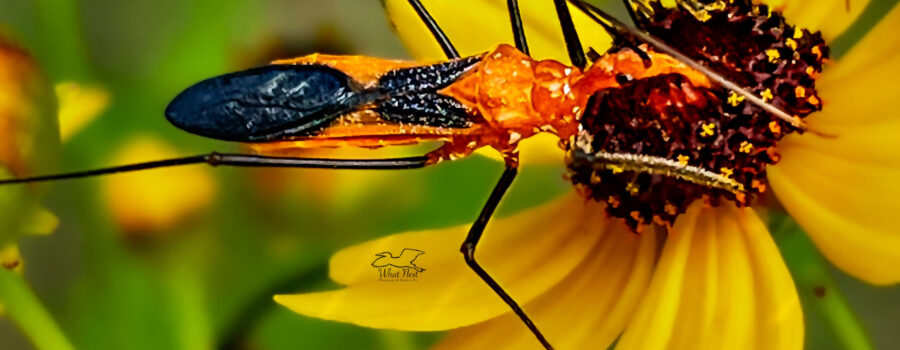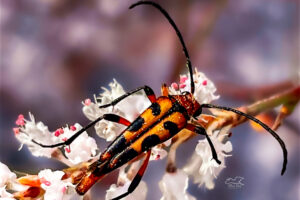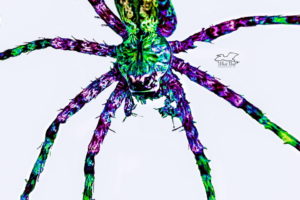Milkweed Assassin Bugs are Great Hunters and Pest Controllers

I really love the abundance of tickseed flowers that we have all over the place right now. Not only are the flowers themselves really pretty, but the pollinators adore them. So if I want to see and photograph bees, wasps, butterflies, and heaven knows what else, all I have to do is find a patch of these flowers. The other day I stopped at a bunch of them and as well as pollinators, I found a milkweed assassin bug (Zelus longipes). I had mixed emotions about finding it there because they are carnivorous and excellent hunters. They like to hide in the vegetation and ambush other insects when they come along. Since the flowers were luring in plenty of pollinators, I’m sure the assassin bug was there to hunt them.

Milkweed assassin bugs are so named because they look very similar to milkweed bugs, which feed on seeds and can be found on milkweed among other plants. This assassin bug can be found in the southern United States, Central America, South America through central Argentina, and the West Indies. It can often be found outside it’s natural range, though, since it’s not uncommon for farmers to use it as a form of natural pest control. Assassin bugs are true bugs, and as such, are related to kissing bugs, shield bugs, and water bugs. They’re also one of the few bugs can can survive winter weather, so they can live for 4-5 years.

Even though I hate to see the assassin bug lying in wait for pollinators, I did not see it catch any. In fact, most of the time I watched it, it was probing the flowers with its long mouth parts. I found that kind of confusing since I know these guys are not pollen eaters. Some research revealed that they sometimes do this as a way of searching for insects hiding down inside the flower. It didn’t seem to be having much luck with that, though, and a short time after I noticed it, the bug decided to crawl across the flowers and into the grass. I suppose it was looking for a better hunting ground. I’m sorry the bug didn’t get to eat, but I am glad that all the pollinators were spared that day. Tomorrow is another day for both the pollinators and the assassin bug.





Recent Comments